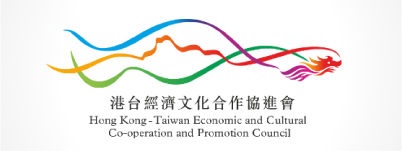Press Releases (434)

主頁 > Press Releases (434) - CMAB
|
Transcript of Secretary for Constitutional Affairs'
briefing session |
|
Following is the transcript (English portion) of a briefing
given by Secretary for Constitutional Affairs, Mr Stephen Lam,
and Head, Central Policy Unit, Professor Lau Siu-kai, to the
media after attending the meeting of the Committee on
Governance and Political Development of the Commission on
Strategic Development today (January 20):
Reporter: Mr Lam, actually Mr Lee Cheuk-yan is asking for some government officials, including you probably, to clarify whether there are some opinions expressed during the meeting that are contravening the idea of universal suffrage, such as proposing that functional constituencies, or things like functional constituencies, should remain after a universal suffrage system is in place? Would you make that kind of clarification for me? SCA: Actually, we had very detailed discussions today about the concept and principles of universal suffrage. Broadly speaking, members of the Commission are in agreement that the concept of universal suffrage includes the principles of universal and equal elections. But as to whether each and every vote will have the same impact in the respective constituencies, technical differences are allowable. And Professor Albert Chan, in his paper submitted to the Commission, in paragraph 25, also states that there is no need for there to be arithmetic equality. In the case of Hong Kong, in the District Council Election, normally our ratio is that of one District Council seat to 17,000 people in the constituency. But there are constituencies which have over 20,000 people and some even more. For the geographical constituencies in the Legislative Council Election, for the five large geographical constituencies, the ratio of seats to registered electors varies from constituency to constituency. But in overall terms, we agree that the universal suffrage concept includes the principles of implementing universal and equal elections. With regard to your specific question, I did clarify that so far as the Hong Kong Government is concerned, we have not taken a view on the long-term future of functional constituency seats in the Legislative Council. There are people who have suggested that one long-term arrangement is that we can consider the possibility of allowing functional constituency organisations to nominate candidates and arranging for the people of Hong Kong, (i.e. registered voters) to elect candidates for representing the community in the Legislative Council. But this is just a suggestion which we have received. This is not the decision of the HKSAR Government. Reporter: Actually, Mr Lee is asking the Government to go further to just state clearly that this kind of deal is actually not very logical and probably also outrageous to some people. SCA: I think another conclusion which is important and which, I think, received general acceptance in today's meeting is that in implementing the concept of universal suffrage for returning the Chief Executive, broadly-speaking among the Commission membership, it is accepted that we can organise, we can put in place a nominating committee which has broad representation to nominate the candidates and then to allow the Chief Executive to be returned by "one man one vote" universal suffrage. But as regards the long-term composition of the Legislative Council, there is no consensus yet. And we are arranging a workshop in February to introduce to members the type of composition of legislatures from around the world and how these legislatures in different places can accommodate the interests of different sectors of their respective communities. I think the question of long-term composition of the Legislative Council, how we can implement universal suffrage for the legislature, is a question which remains to be explored. (Please also refer to the Chinese portion of the transcript.) Ends/Saturday, January 21, 2006 |





























